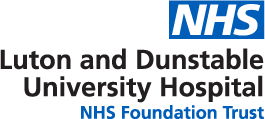By continuing to use the site, you agree to the use of cookies. You can find out more by following this link - Close
Endocrine therapy is one of the treatments for breast cancer and is often given after surgery as an adjuvant treatment to prevent breast cancer returning. If chemotherapy is also planned then endocrine therapy will not be started until the chemotherapy has finished. Endocrine therapy works by blocking the female hormones that can stimulate breast cancer growth. Most breast cancers that occur (either in women or men) will be sensitive to female hormones such as oestrogen and progesterone. All breast cancers are checked to see if they are sensitive to either oestrogen or progesterone by testing them to see if they carry ‘receptors’ that make them respond to these hormones (‘hormone receptor positive’). Endocrine therapy is only useful if a breast cancer is hormone receptor positive, and is usually only given for invasive breast cancer rather than pre-invasive (otherwise know as ductal carcinoma in situ or DCIS) breast cancer.
Sometimes endocrine therapy may be given before surgery as a neoadjuvant treatment, either to try to make a cancer smaller, or to allow time for further tests or decision making before surgery, or because of other illnesses that need treating first. Endocrine treatment is usually given as a tablet, and is continued for 5 or 10 years after surgery.
There are various types of endocrine therapy, and it is generally a well-tolerated treatment that is very successful at preventing breast cancer recurrence. All drugs can have side effects though, and your Doctor and Breast Care Nurse will be able to advise you about these. If you are getting significant problems with side effects then there are various things that can be done to help and you may benefit from switching to a different form of Endocrine treatment. The commonest types of endocrine treatment are Tamoxifen, or a family of drugs called aromatase inhibitors; these include anastrazole, letrozole and exemestane.

